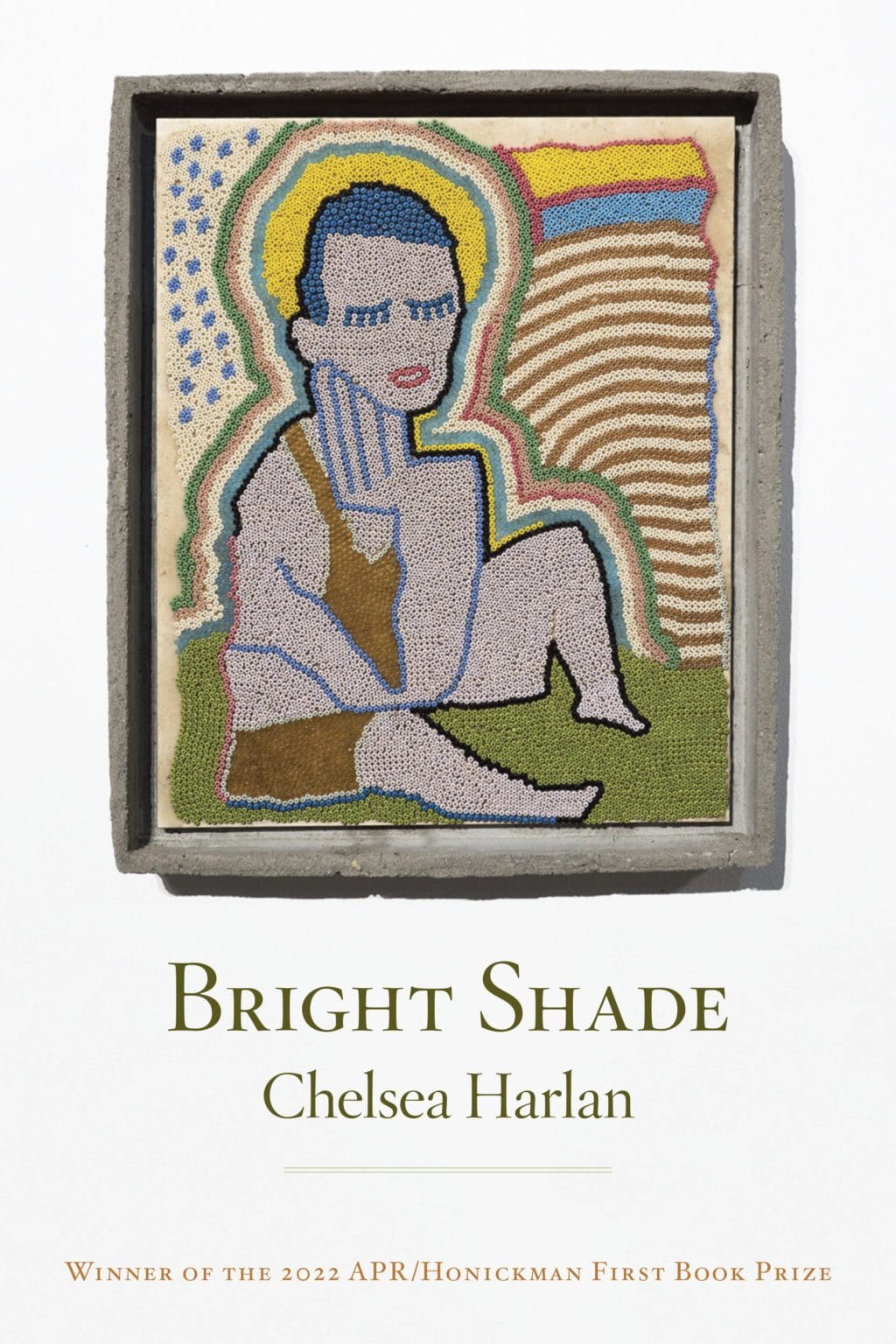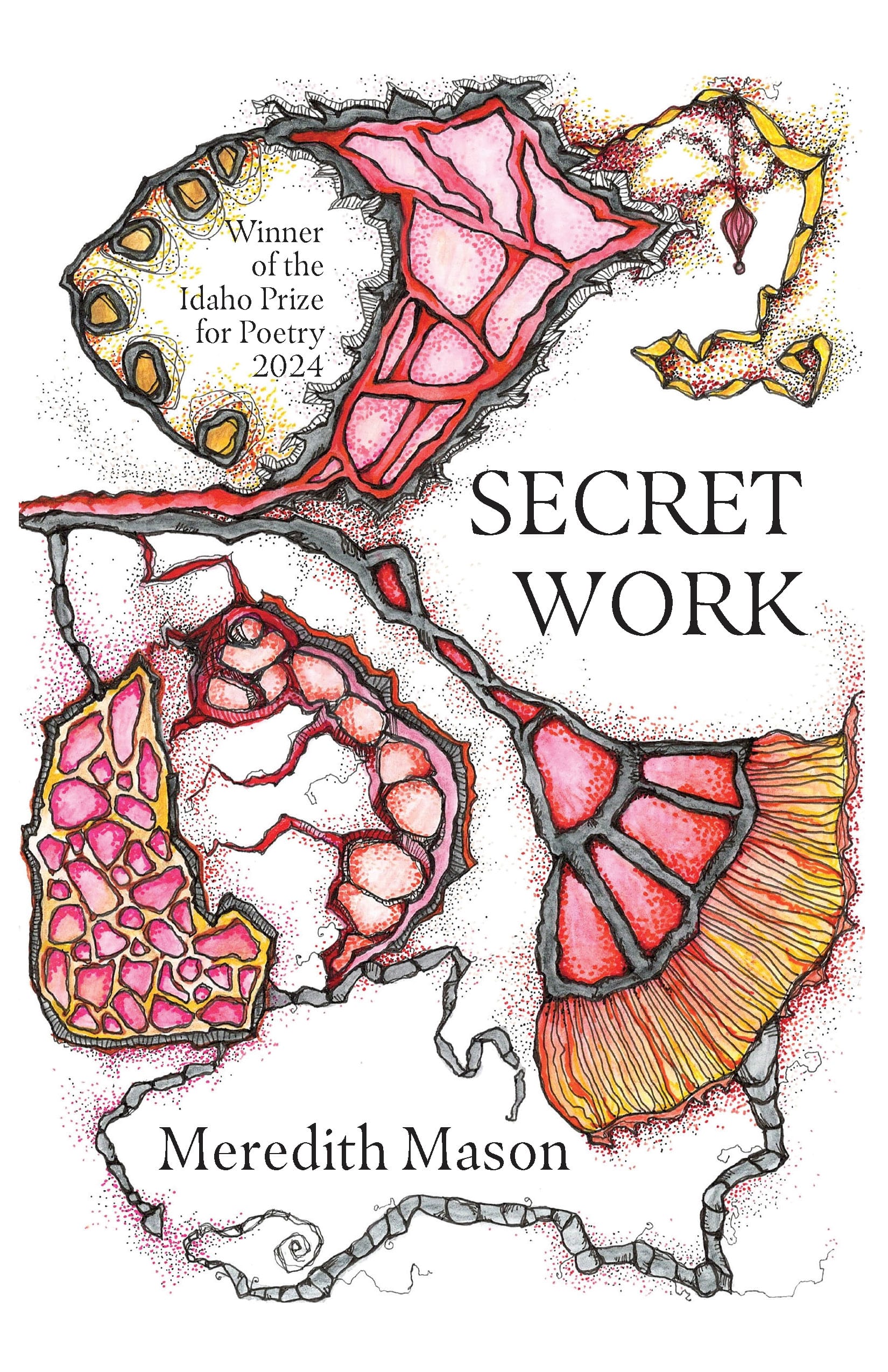The High Voltage of Chelsea Harlan's "Bright Shade"
By Billy Greene
Editor's note: Thursday, October 16th, Chelsea Harlan and Meredith Mason (Appleton) will be having a reading at the Wriston Art Gallery, Lawrence University. This is a free event, open to the public, from 7:00–8:45pm. These readings are sponsored by the Mia Paul Poetry Fund.
This coming Thursday, October 16th at 7p.m., two dazzling poets will grace the stand of Wriston Galleries — Chelsea Harlan, hailing from Appalachia, and Appleton’s own Meredith Mason. The reading is a part of Lawrence University’s Mia Paul Poetry series, which is free and open to the public. The following review essay provides a dog-eyed glimpse into Harlan’s Bright Shade.
To channel Harlan’s own command over technique, the poems of Bright Shade are like car crashes: exploding in technicolor confetti, bent over by their metallic urgency, scored by sleazy billboard hits. “Adidas” compares a crayon box worth of images to her kid’s slumbering: “like the dissertation of a blizzard major”; “like you’ve exhausted every Ninja Turtle in your army”; “Like you came without batteries”; you get the picture. These images all operate within the “elegance of quotidian activities” her speaker and address move through; yet as soon as these similes begin to lull, Harlan slaps us with the poem’s end: “You wake up / like a neon hummingbird.”
Not merely listing, however, the sexy “Love Poem Called Die Hard” doesn’t shy away from erotic implication: “or unlike Bruce Willis / You die hard but you’re alive the whole time.” The punny play hasn’t stopped yet: “It’s here I could die like an Easter egg,” her speaker admits, toeing the line between typo and double entendre. Harlan’s hilarious audacity while working with simile continues in “Bobby Boris Pickett,” comparing pawpaws to “Brobdingnagian emeralds,” their leaves like “biblical fragments / stuttered through the evergreen heavens.” These images are heavy lifts, effortlessly articulated by a poet familiar with the dirt under her fingernails and fluent in the tongue of some sinister yet divine purgatory.
The title Bright Shade within itself is a compromise: not quite flooded by rumination, not quite catching full sunlight down in the holler. Even the upfront “Sonnet for a Good Cry in the Woods” collides praise with shame: “Love is a babe, pig in the city. / … / The earnest shame of writing poetry.” Despite the filth of this “good cry,” Harlan remains committed to left-field images: “Another motorbike zooms wizardly by / the tulips like interrobangs on Park Avenue.” What a firework of a line! Simultaneously self-aware yet supernatural, the poems here know when to curl back in — settle back into the explicit: “Take my picture with this bag of chips. / Quick, I’ll never be this young again.”
And quick does this collection culminate: its six sections read like a mosaic of stoned conversations overheard in the din of a Waffle House — somehow, arriving at a sense of sense. The closer “Resolutions” is unassuming as it is a spell cast: “Be like an otter / in the water / Be like water / supple-strong / melodious / not always blue.” Taken as ekphrasis for the whole of “Bright Shade,” these commands surface the novelty of Harlan’s voice: nesting dolls cascading to reveal a muscular and acidic center.
Billy Greene is an interdisciplinary poet, mover, and musician hailing from Milwaukee, Wisconsin and Florida’s Gulf Coast. They are a student at Lawrence University.






